News
-

New: Overview of Estonian migration statistics 2018-2022
Overview of migration statistics 2018-2022 provides answers to the following questions: ● What characterizes the emigration and return of Estonian citizens? ● Which foreign country has the most Estonian citizens living there? ● To whom, for what purpose, and how many visas were issued? ● How many registrations of short-term employment were there and […]
-
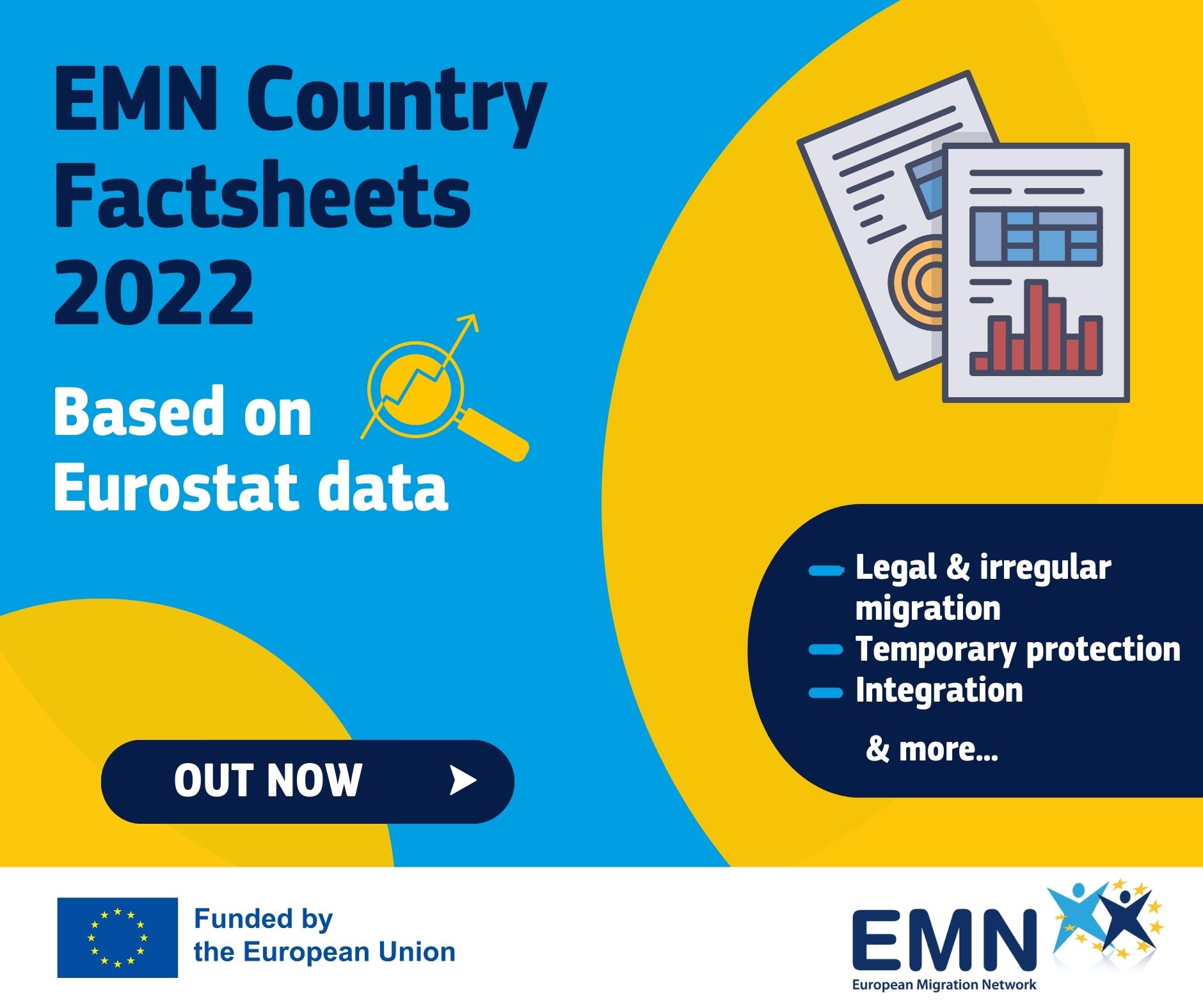
EMN Country Factsheets 2022 are out now!
The EMN country factsheets provide a succinct summary of the main developments in each EMN Member State and EMN observers in a given year. EMN country factsheets also provide an overview of most recent migration and international protection-related statistics. You can find all country factsheets on European Commission´s webpage here.
-
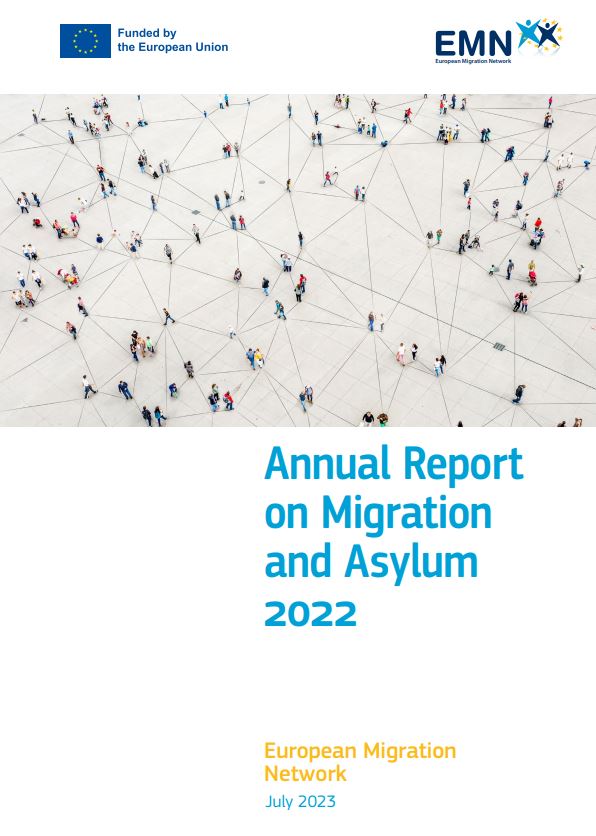
Annual Report on Migration and Asylum Policy 2022
The European Migration Network (EMN) Annual Report on Migration and Asylum 2022 provides a comprehensive overview of EU and national developments across a wide range of migration and asylum topics, including the response to the influx of persons fleeing the war in Ukraine, legal migration, international protection, minors and vulnerable groups, integration, citizenship and statelessness, […]
-
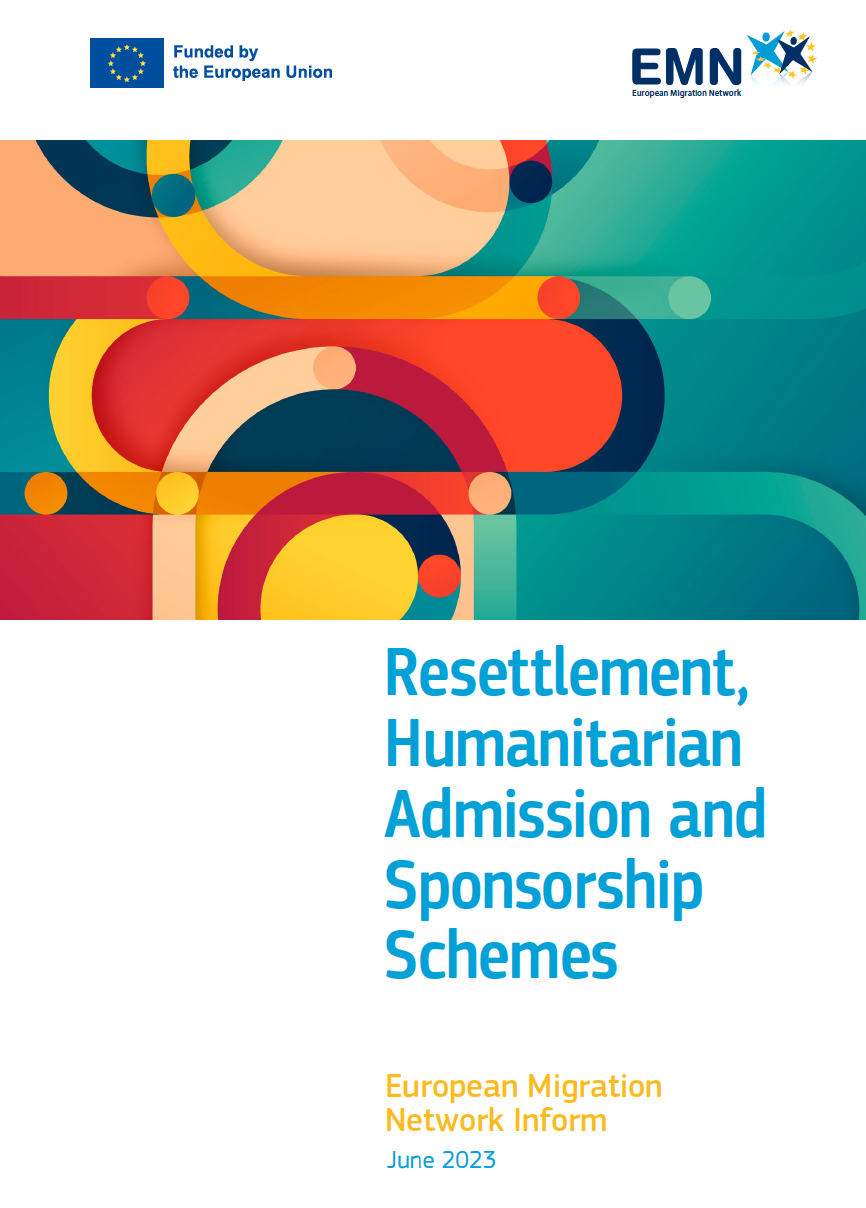
EMN inform provides an overview of Resettlement, Humanitarian Admission and Sponsorship Schemes
The inform provides up-to-date and comparative data on resettlement, humanitarian admission and sponsorship schemes. It presents recent developments in EMN Member Countries between 2016 to 2022 and offers a valuable resource for countries launching new programmes to learn from established programmes in other countries. Moreover, it aims to complement and enhance other knowledge-sharing initiatives in […]
-
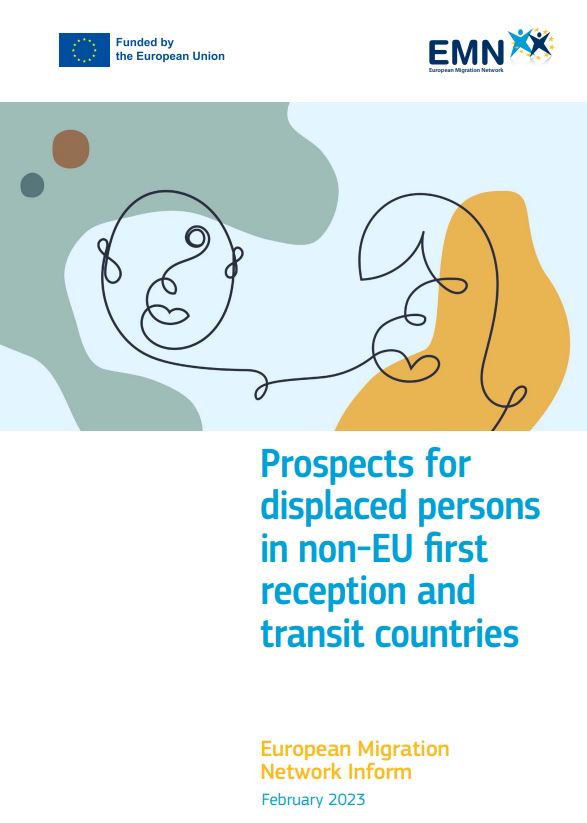
EMN Inform: Prospects for displaced persons in non-EU first reception and transit countries
This inform provides an overview of the strategies and initiatives put in place by the EMN Member Countries to enhance the prospects of displaced populations in non-EU first reception and transit countries. It also identifies good practices that could serve as a starting point to develop or improve sustainable support initiatives. Enhancing the prospects of […]
-
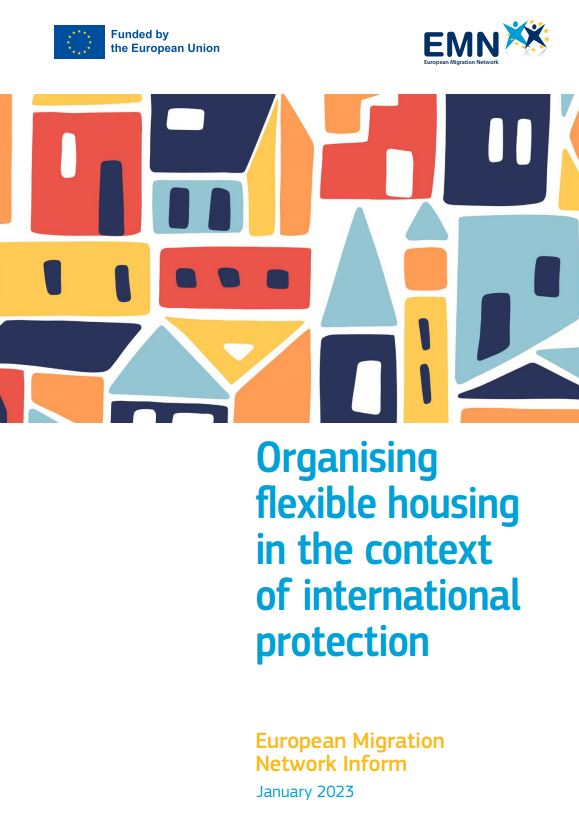
EMN inform: Organising flexible housing in the context of international protection
The inflow of applicants for international protection can be subject to rapid, substantial changes. Together with other factors, this can lead to pressures on the reception systems of EMN Member and Observer Countries, including their capacity to provide housing. To manage changes in demand for housing, countries need to be able to both quickly upscale […]
-
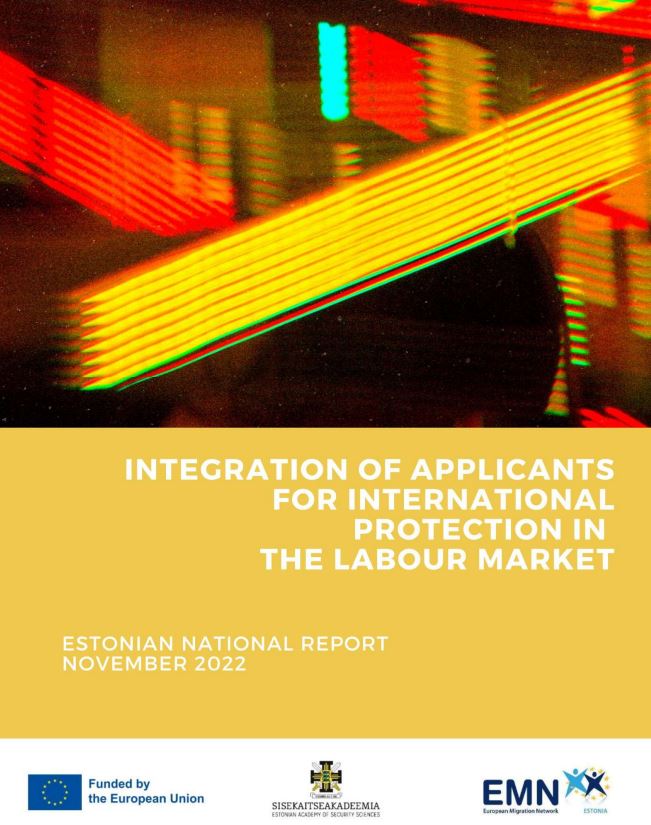
EMN study: Integration of applicants for international protection to the labour market (Estonian national report)
The study focuses on the integration of applicants for international protection in the labour market and addresses third country nationals that have applied for international protection in Estonia and would benefit from the access to the labour market between the period of 2017 to 2022 (June). EMN synthesis report with contributions from other EU Member […]
-
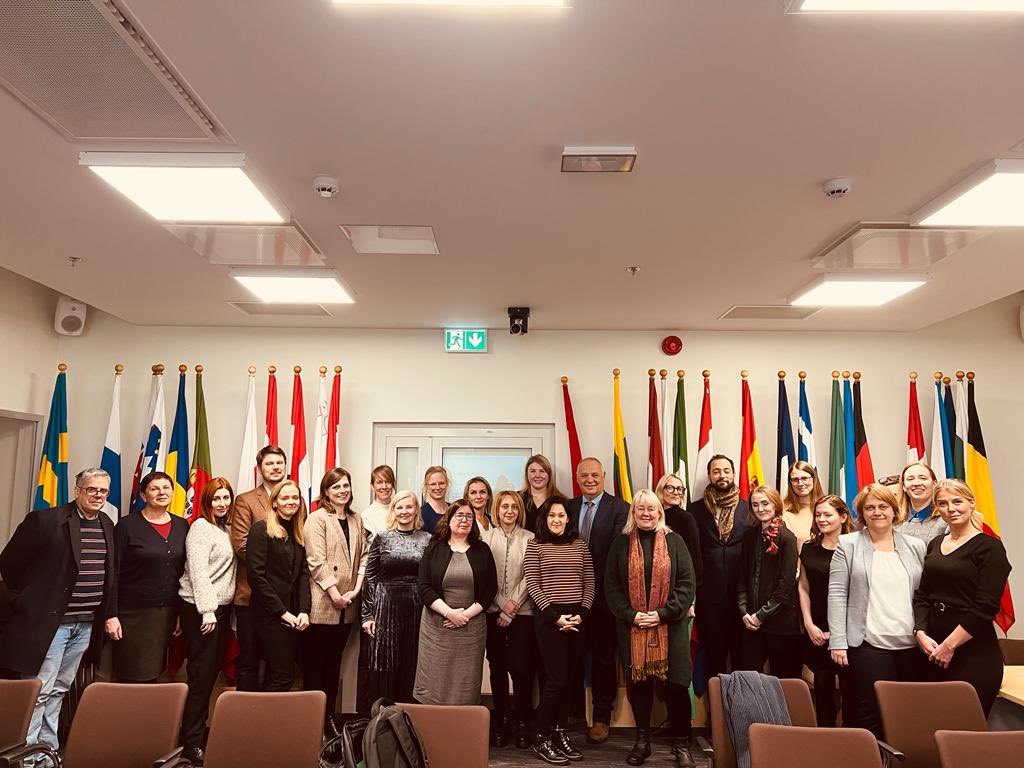
EMN Luxembourg and EMN Estonia co-organized a technical meeting on “Ensuring the right to nationality for every child”
EMN Luxembourg and EMN Estonia organized a technical meeting on 7th December 2022 on “Ensuring the right to nationality for every child”. The hybrid event was held within the scope of the EMN Platform of Statelessness, which was established in 2016 on the basis of the Justice and Home Affairs Council conclusions of 3 and […]
-

New EMN inform published: Arrangements for accommodation and housing for beneficiaries of temporary protection
This inform is based on contributions provided by 24 Member States with information updated as of 1st September 2022 and is complementary to the Safe Home initiative announced in March 2022 by the European Commission to support Europeans voluntarily hosting those fleeing the war, notably by mobilising dedicated EU funds and instruments for initial housing […]
-
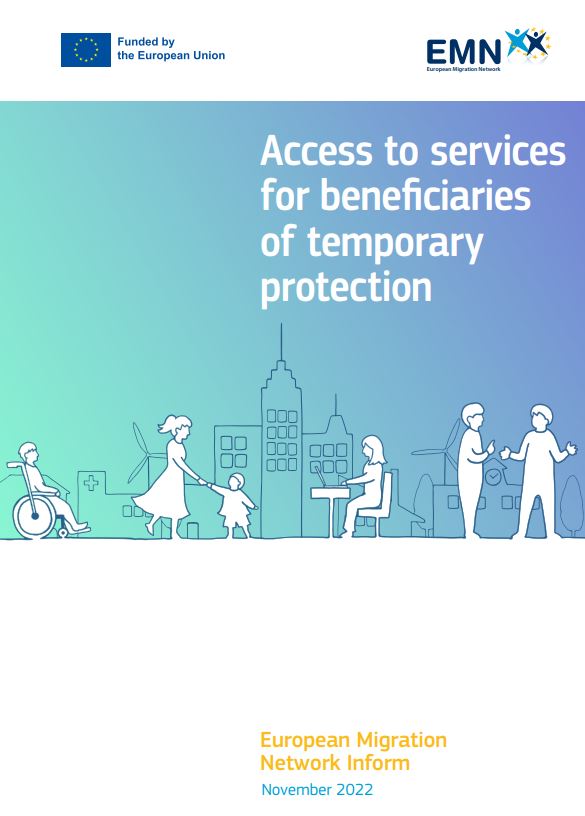
New EMN inform published: Access to services for beneficiaries of temporary protection
According to the United Nations High Commissioner for Refugees (UNHCR), as of 15 November 2022, over 7.8 million people (mainly women and children) had left Ukraine in search of safety, arriving primarily in neighbouring European Union (EU) and third countries. The large number of people fleeing Ukraine necessitated the provision of specific policies and measures […]
-
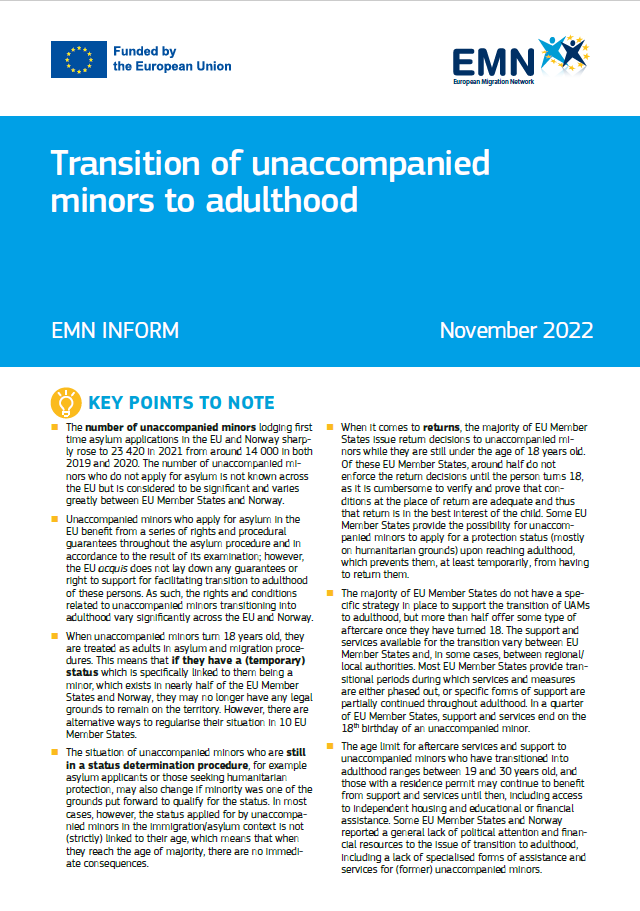
New EMN inform published: transition of unaccompanied minors to adulthood
What measures, structures and systems are in place in the EU Member States and Norway to provide transitional support to unaccompanied minors after reaching the age of majority?
-

New inform: Secondary movements of beneficiaries of international protection
How do Member States regulate the mobility and residence of persons already granted international protection status in another Member State? What are the appliable rules for transfer of responsibility of a beneficiary of international protection?